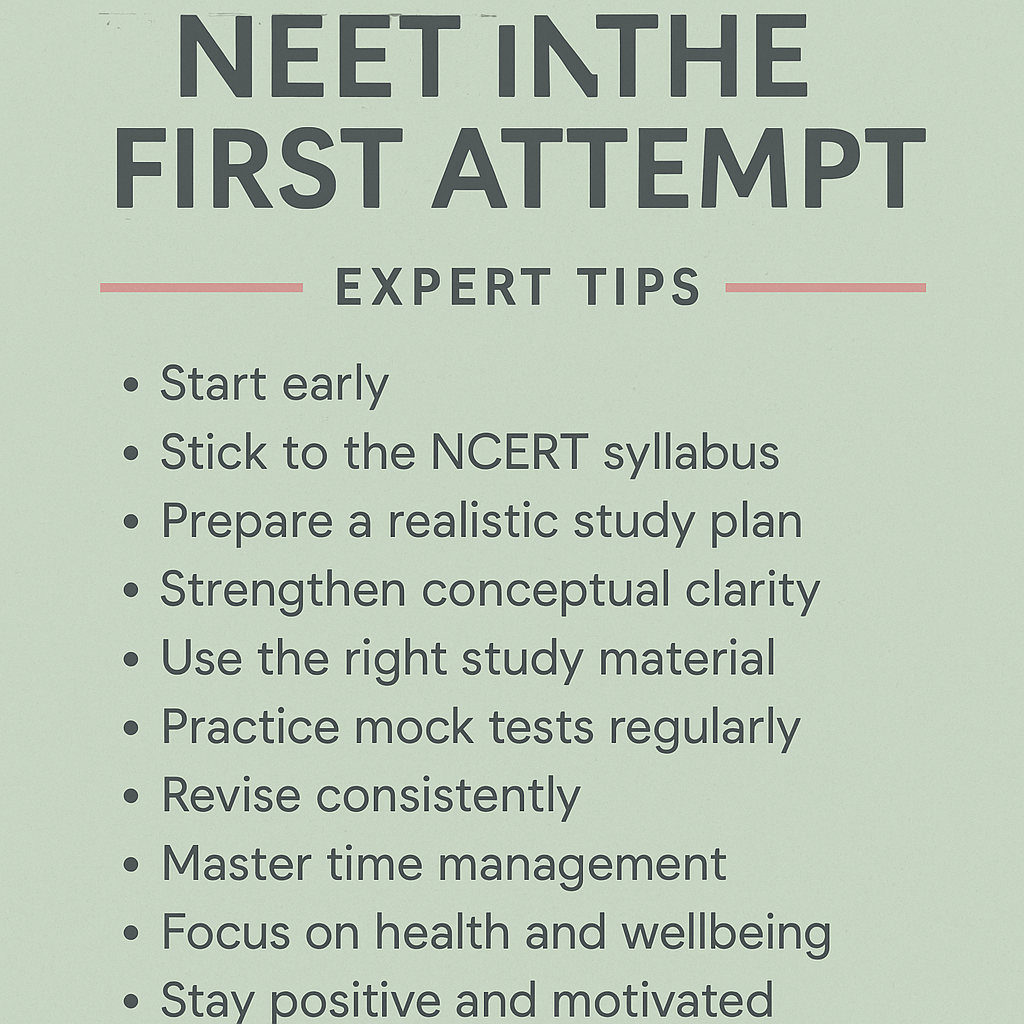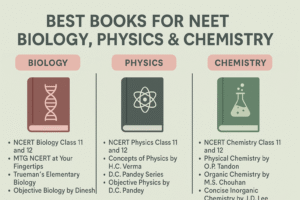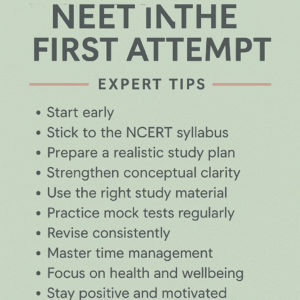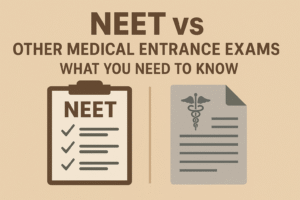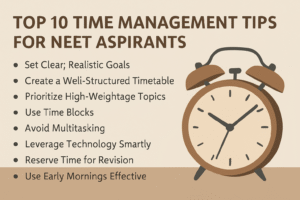Preparing for NEET (National Eligibility cum Entrance Test) can feel overwhelming, especially when aiming to succeed in the first attempt. However, with the right mindset, strategy, and dedication, you can achieve your dream of becoming a doctor without multiple tries. This guide offers proven expert tips, preparation techniques, and resources to help you crack NEET on your very first attempt.
Why Cracking NEET in the First Attempt Matters
Saves valuable years of preparation
Builds confidence for future medical studies
Reduces mental pressure and financial burden
Allows early entry into professional courses
Understand the NEET Exam Structure
Before diving into preparation, you must understand the NEET pattern:
Mode: Offline (pen and paper)
Duration: 3 hours 20 minutes
Subjects Covered:
Physics: 50 questions
Chemistry: 50 questions
Biology: 100 questions (Botany + Zoology)
Total Marks: 720
Marking Scheme: +4 for correct answers, -1 for wrong answers
How to Crack NEET in the First Attempt – Step-by-Step Approach
1. Start Early
Begin your NEET preparation right from Class 11. An early start gives you ample time to:
Build strong conceptual foundations
Revise thoroughly
Practice extensively
2. Stick to the NCERT Syllabus
Nearly 75-80% of NEET questions are derived directly from NCERT textbooks. Ensure you:
Read NCERT thoroughly for Physics, Chemistry, and Biology
Make margin notes and underline key points
Solve in-text and back-exercise questions
3. Prepare a Realistic Study Plan
A good timetable balances learning and revision. Experts recommend:
6–8 hours of study per day
Dividing time equally among all three subjects
Weekly targets and self-assessment
Time for mock tests and relaxation
4. Strengthen Conceptual Clarity
Avoid rote memorization, especially in Physics and Chemistry. Focus on:
Understanding derivations
Visualizing processes
Linking concepts across chapters
5. Use the Right Study Material
Apart from NCERT, refer to:
Physics: HC Verma, DC Pandey
Chemistry: OP Tandon, MS Chauhan
Biology: Trueman’s Biology, MTG Objective NCERT at Your Fingertips
Previous years’ NEET papers
6. Practice Mock Tests Regularly
Experts agree that mock tests are the game-changer.
Attempt full-length tests every week
Simulate exam conditions (3 hours 20 minutes, no distractions)
Analyze mistakes to avoid repetition
Gradually improve speed and accuracy
7. Revise Consistently
Revision should be ongoing, not just before the exam.
Create summary notes and flashcards
Focus more on weak areas during revision
Revise Biology diagrams and NCERT lines regularly
Revise Physics formulas and Chemistry reactions weekly
8. Master Time Management
During NEET, you must solve 180 questions in limited time. To improve time management:
Practice solving questions within set time limits
Avoid spending too long on a single question
Keep last 10 minutes for rechecking
9. Focus on Health and Wellbeing
Physical and mental health directly impact performance:
Sleep 7–8 hours daily
Eat nutritious meals
Exercise or meditate to reduce stress
Take short breaks during study hours
10. Stay Positive and Motivated
Maintain a growth mindset:
Avoid negative self-talk
Visualize success daily
Celebrate small achievements
Surround yourself with supportive people
Common Mistakes to Avoid
Ignoring NCERT basics
Focusing only on theory without practice
Skipping mock tests
Neglecting difficult topics
Over-studying without rest
Conclusion
Cracking NEET in your first attempt is possible if you prepare with discipline and smart strategy. Start early, focus on NCERT, take regular mock tests, and maintain your wellbeing. Remember, consistent effort matters more than last-minute cramming.
FAQs – How to Crack NEET in First Attempt
Q1. Can I crack NEET in the first attempt without coaching?
Yes, with disciplined self-study, NCERT books, mock tests, and quality online resources, many students have cleared NEET without coaching.
Q2. How many hours should I study daily to clear NEET in the first attempt?
Aim for 6–8 focused hours per day, depending on your understanding and pace.
Q3. Is NCERT enough for NEET?
For Biology, NCERT is almost entirely sufficient. For Physics and Chemistry, use NCERT as the base and practice from reference books.
Q4. How important are mock tests?
Mock tests are crucial. They build stamina, improve time management, and help you identify weaknesses.
Q5. When should I start NEET preparation?
Ideally, begin in Class 11 to cover the syllabus without rushing.

